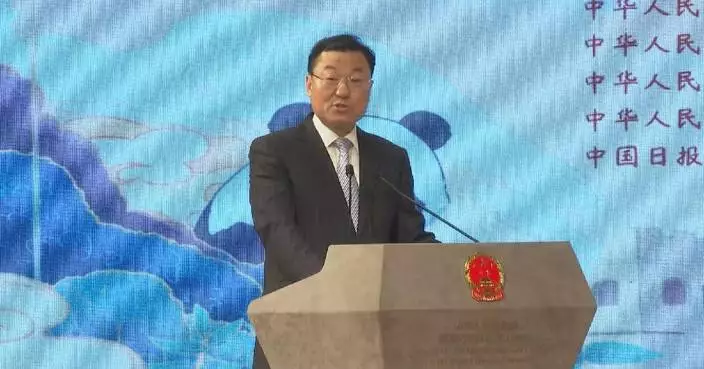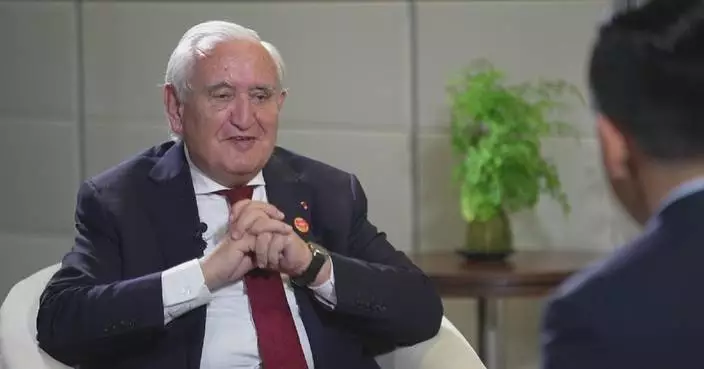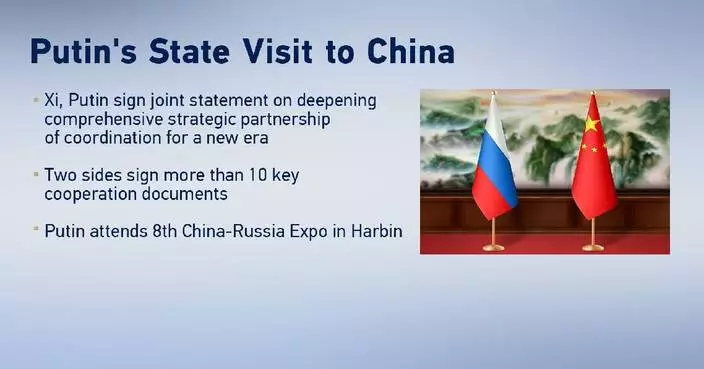Foreign visitors to the ongoing Canton Fair in south China have found it convenient to use international bank cards on ATMs, POS machines and other facilities in Guangzhou, a major foreign trade hub and the host city of the fair.
The 135th session of the China Import and Export Fair, or the Canton Fair, began on April 15 and will conclude this Sunday, with over 234,000 overseas buyers participating in the event as of Thursday.
Guangzhou has more payment options for foreign visitors, by authorizing 14 foreign currency exchange institutions, adding over 70 currency exchange points and over 6,700 foreign card POS machines at key locations like ports, hotels, and exhibition halls. This makes it more convenient for foreign visitors to pay for their hotel accommodations, meals, and shopping.
Currently, in key areas of Guangzhou popular among foreigners, 65 percent of businesses accept foreign bank cards, while over 95 percent of ATMs in these areas can process transactions involving foreign bank cards.
"Our bank now offers convenient account opening services tailored for foreigners. All our outlets provide foreign currency exchange services. Our self-service machines are accessible for foreign card withdrawals at all times. We also provide currency exchange service for small denominations, ensuring maximal convenience for foreign visitors' financial needs in China," said Xie Guowu, an operation director at a branch of the Bank of Communications in Guangzhou.

Guangzhou financial services facilitate foreign visitors
The Russian auto market has undergone a major shift in recent years,with Chinese brands surging in popularity and now capturing over half of new car sales in Russia.
Following Russia's conflict with Ukraine, major companies from Germany, the U.S., South Korea, and Japan ceased official sales, supplies, and services in the country, leading to a significant increase in prices for their cars and spare parts.
This void has been filled by Chinese car brands, whose market share in Russia surged to over 60 percent in 2023, nearly doubling from the previous year. In contrast, China held just a 9 percent market share in February 2022.
Ekaterina, an owner of a Chinese car who switched from a European brand, cited the complications in servicing her old car after Western car brands exited the Russian market. She highlighted the stability of Chinese car prices as a key factor behind her decision.
"A year ago, many people had concerns about whether to switch to a Chinese-made car and some of my friends decided to do so. People looked at the car, listened to the pitch, and made the choice naturally because the price is stable," she said.
Sergey Tselikov, director of the analytical agency Avtostat, predicts further growth in 2024, as Chinese companies have already exported record volumes of cars to Russia.
"First, almost all other brands have stopped supplying to Russia. Automakers in South Korea, Japan, Europe and the U.S. have halted supplies amid fears of sanctions," said Tselikov.
Tselikov also pointed to the significant quality improvements in Chinese car manufacturing over the past five to seven years as another reason for their popularity in Russia.
The share of dealerships selling Chinese cars in Russia witnessed a remarkable increase, rising from 31 percent to 65 percent in 2023, while the number of models and modifications continues to expand. Chinese automakers have even re-purposed some factories previously used by Western car manufacturers.
Russia is also encouraging localization efforts, hoping to revive its own car manufacturing industry.
"The [Russian] Ministry of Industry and Trade and the government are stimulating and trying to ensure that the cars are not only imported but assembled in Russia and then hopefully localized. In Russia, this is a problematic endeavor because it is very difficult to produce cheaper components in Russia than those produced in China," said Tselikov.
Russian companies are seeking collaboration with Chinese firms to domestically assemble Chinese cars. Moskvich, a long-established Soviet-era car company, has started assembling Chinese cars under its own brand.

Chinese cars reshape Russia's auto industry as Western brands scale back










